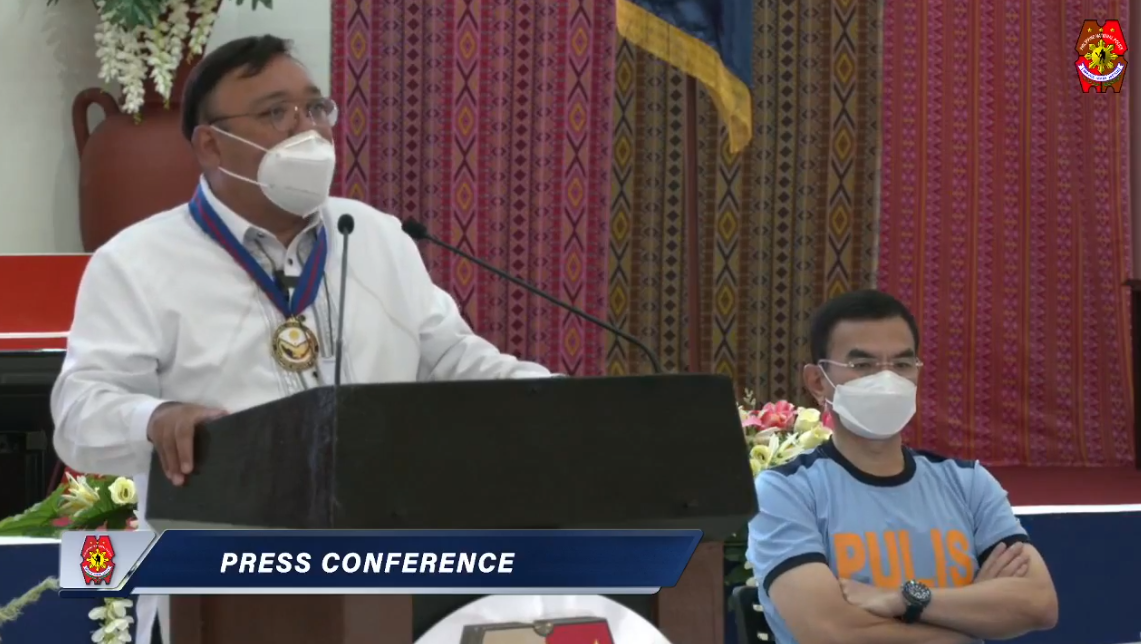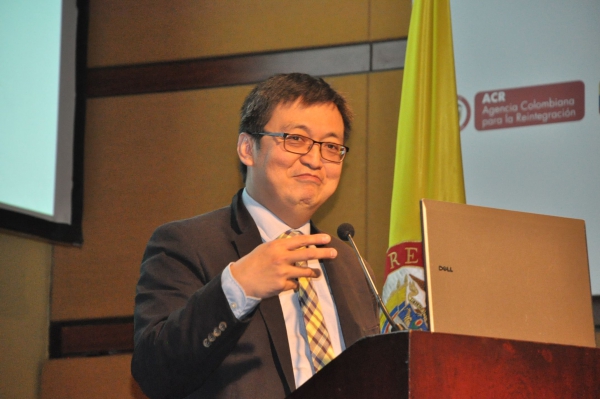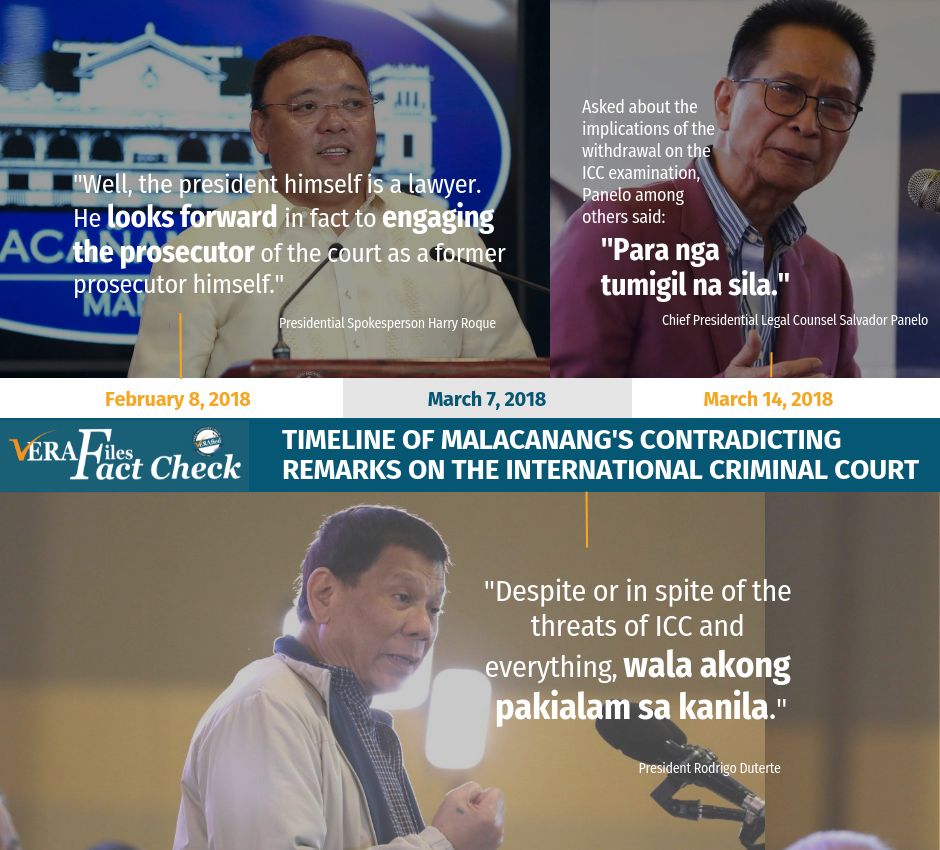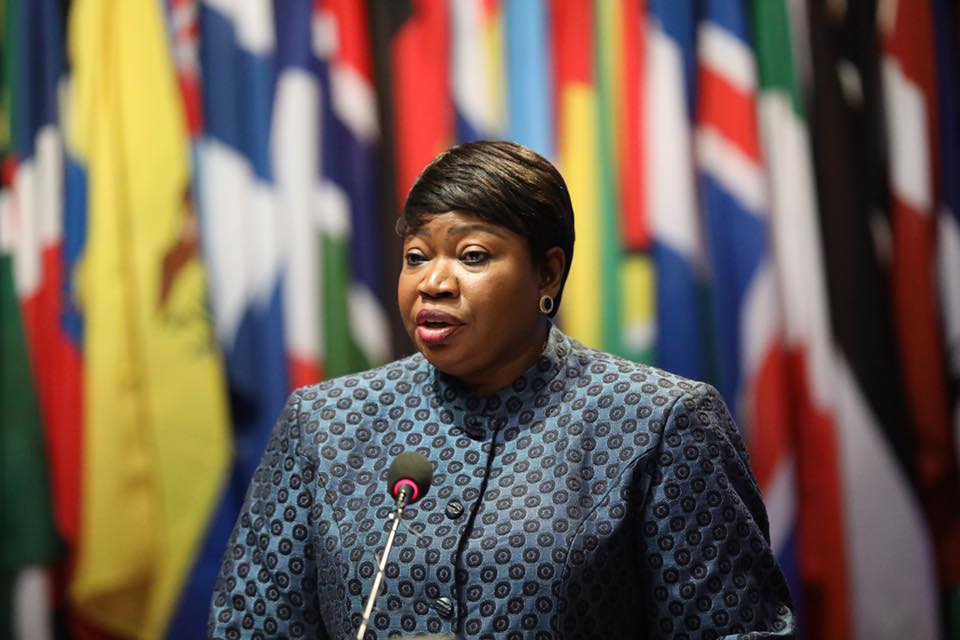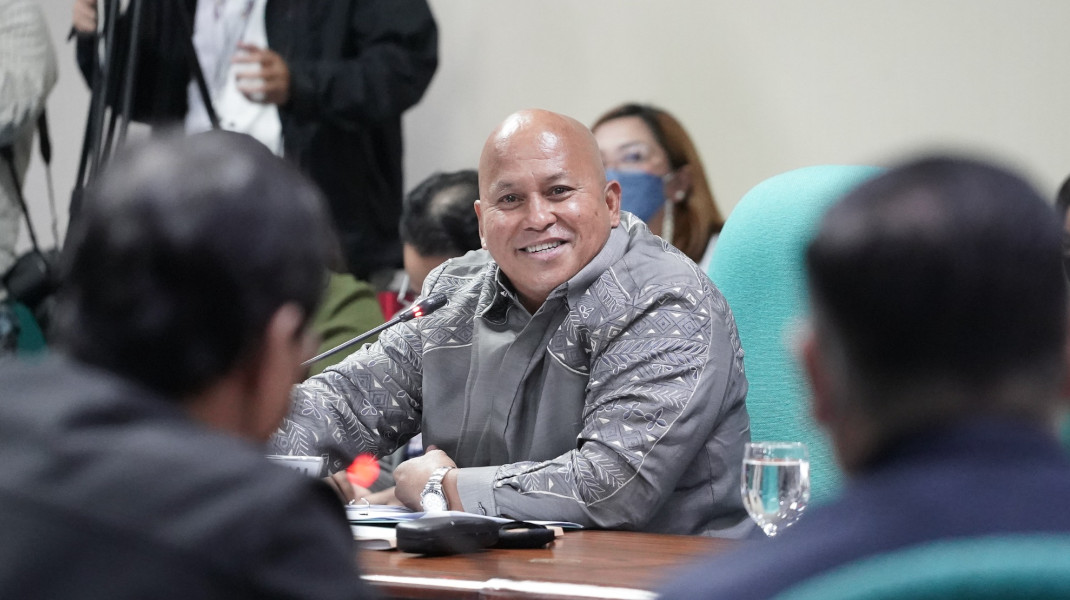President Rodrigo Duterte “will never cooperate” with the International Criminal Court (ICC) in the event its Pre-Trial Chamber grants the request of Prosecutor Fatou Bensouda for investigation of the administration’s war on drugs campaign, Palace Spokesperson Harry Roque said on June 15.
“Sinabi na po ng presidente, hinding-hindi tayo makikipag-cooperate dahil hindi na tayo miyembro ng ICC … Hinding-hindi makikipag-cooperate ang presidente hanggang tapos ang kanyang termino sa June 30, 2022,” Roque said in a press briefing at Camp Crame in Quezon City.
(The president had said, we will never cooperate because we are no longer a member of ICC … The president will never cooperate until the end of his term on June 30, 2022.)
On the eve of her retirement as prosecutor at the ICC, Bensouda announced on Monday that she has asked the court’s Pre-Trial Chamber to grant “judicial authorization” for an investigation of Duterte’s war on drugs, following initial findings that “state actors, primarily members of the Philippine security forces, killed thousands of suspected drug users and other civilians during official law enforcement operations.” (See Gov’t officials, police conspired to carry out Duterte’s war on drugs — ICC prosecutor)
Roque, who once lawyered for victims of human rights violations, described Bensouda’s report as “legally erroneous” and “politically motivated,” and cast aspersion on the ICC prosecutor for supposedly targeting Duterte to be able to prove her critics wrong that she was filing cases only against African leaders.
He nevertheless expressed hope that the ICC’s Pre-Trial would reject Bensouda’s request for authorization to open a formal investigation of Duterte’s war on drugs “because of complementarity.”
“It’s not in pursuit of social justice because the Philippines is no longer a member,” Roque asserted. He said it would be a “waste of time and resources of the court” to proceed with an investigation because the pieces of evidence presented would be “hearsay,” claiming that those were submitted only by Duterte’s political rivals and leftist groups who were also killing ordinary people like the 21-year-old football player Kieth Absalon who was killed with his cousin a week ago in Masbate City on June 6.
The ICC probe, Roque said, will not succeed without the cooperation of the state.
He further said the government does not recognize the jurisdiction of the ICC on alleged crimes against humanity committed in carrying out the administration’s campaign against illegal drugs because local institutions are well in place and capable of investigating the alleged extrajudicial killings linked to the drug war.
If at all, Roque said, the ICC should be investigating the killings by the New People’s Army, the military arm of the Communist Party of the Philippines.
At the same time, he justified the deaths in the police operations against suspected drug dependents, saying those were not targeted but were merely coincidental or collateral damage “because the policeman had the right to defend himself using reasonable force or they were in fact the subject of an attack and therefore justified by the principle of necessity and proportionality.”
In Bensouda’s report, it said “available information indicates that members of the Philippine National Police, and others acting in concert with them, have unlawfully killed between several thousand and tens of thousands of civilians” from the time Duterte assumed the presidency on July 1, 2016 until the Philippines ceased being a state party to the ICC on March 19, 2019.
Meantime, the Department of Foreign Affairs issued a statement, calling Bensouda’s request as “deeply regrettable” and noting that under the Rome Statute, jurisdictions for prosecuting cases with huge international impact should respect and defer to the country that it seeks to investigate.
“The precipitate move of the Prosecutor is a blatant violation of the principle of complementarity, which is a bedrock principle of the Rome Statute,” it said.
The DFA also said the government “has taken concrete and progressive steps to address concerns in the conduct of the anti-illegal drugs campaign” in the country and that it has “recently finalized” with the United Nations (UN) a joint program on human rights.
For his part, Philippine National Police Chief Guillermo Eleazar said in a press briefing with Roque that the PNP “is not hiding anything” in the documents on anti-illegal drugs operations, and that it is willing to cooperate in the investigation of the Department of Justice (DOJ).
Eleazar also said that the PNP has already submitted to the DOJ 53 documents in which they found lapses, following a review of the Internal Affairs Services. (See Why does DOJ need PNP consent to probe cops in drug war?)
“But outside of DOJ, nasa (we are in a) chain of command tayo and we will seek guidance through the SILG (Secretary of Interior and Local Government),” he added.
Duterte stated on May 31 that the Philippine government “cannot give access” to all documents on the war on drugs operations, citing national security considerations. (See ‘Ridiculous,’ SC says on drug war records as ‘national security’)
But Eleazar said the PNP is willing to give the DOJ access to all its records on the anti-illegal drugs operations, which was reported at more than 7,000 pieces.
